
March 2012
| If you have trouble viewing this page, click here | |
|---|---|
 | en - fr March 2012 |
Index | Special FeatureThe Pegaso project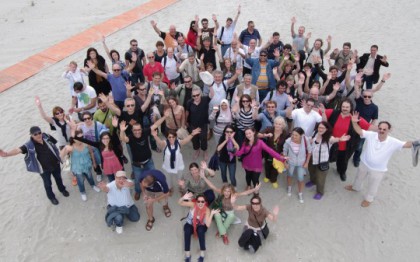 Pegaso (« People for ecosystem based governance in assessing sustainable development of ocean and coast ») is a collaborative project between 25 Mediterranean and Black Sea institutions and organisations that seeks to assist Mediterranean countries to put into practice the Protocol for Integrated Coastal Zone Management (ICZM) in the Mediterranean and its applicability in the Black Sea. The ICZM Protocol is a novel agreement that formalizes an integrated coastal management between the riparian countries based on the ecosystem approach. This newsletter aims at providing an overview on main project achievements and work planned for the coming months... Full story → | Spotlight |
Top ↑The platform | |
|---|---|
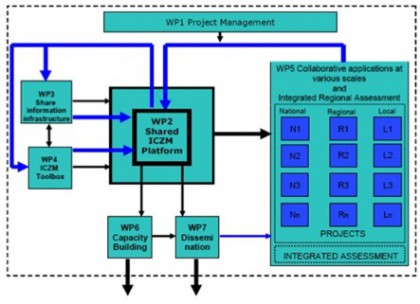 The main goal of the Pegaso project is to construct a shared Integrated Coastal Zone Management (ICZM) Governance Platform with scientists, users and decision-makers linked with new models of governance. To this end, a paper on governance criteria is being finalised by partners. The ICZM Governance Platform will facilitate the application of the ecosystem approach to the Mediterranean and Black Sea coasts, to support the implementation of the ICZM Protocol - linking the knowledge and information of the different elements required for the equitable and sustainable management of both coastal land and waters. To implement the ecosystem approach, the Pegaso project has compiled information from all countries in Mediterranean and Black sea countries through an extensive survey across countries, and has presented a summary of the first results to the ICZM Protocol national focal points (representatives from ministries responsible for the environment in Mediterranean and Black Sea countries) in Istanbul, Turkey last October and later during the Extraordinary Meeting of the PAP/RAC National Focal Points, Dubrovnik, Croatia, 18-19 October 2011. The national focal points welcomed ... Full story → | |
Top ↑The tools | |
|---|---|
 Tools considered and under development as future components of the governance platform include the review and selection of appropriate indicators to measure sustainable development of coast and sea; systems for coastal land and marine ecosystem accounting; scenarios; participatory methods; economic assessment and social valuation; and the integration of all these into an interactive toolbox. A Capacity Building Plan has been produced and online training materials and attending courses are under way to improve the capacity of project partners and users. These empowerment of partners will take the approach of "learning by doing" and produce recommendations for best practises concerning issues to be addressed or the scale of the assessment. In this direction, a moodle e-learning platform has been created to organize the training materiasl, to be scheduled in five stages. A face-to-face meeting on SDI will take place in Oostende, Belgium from 22 to 25 October 2012, and further training workshops are being organised on the CASEs and Scenarios. The European Environment Agency ... Full story → | |
Top ↑The pilots | |
|---|---|
 At site level, the project participants are testing and validating the assessment tools developed during the project at different spatial scales through 10 Pegaso Cases (Collaborative Application SitES), contributing to the Regional Assessment at basin scale of the Mediterranean and Black Sea. Different CASES have been chosen in order to obtain a set of heterogeneous coastal situations; the CASES selected both in the Mediterranean (7) and in the Black Sea (3) represent different coastal physical features, geographic scales, socio economic contexts, coastal issues, conflicts among uses, and ICZM experiences. In the Mediterranean Sea, the sites selected ... Full story → | |
Top ↑Sharing our data | |
|---|---|
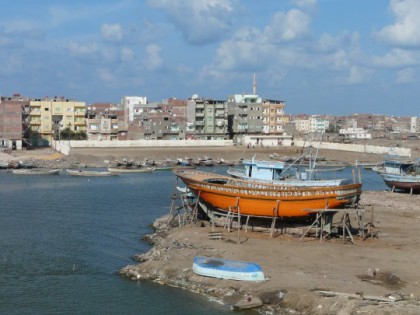 The Pegaso ICZM Platform will be supported by the development of a Spatial Data Infrastructure (SDI) reuniting spatial data at regional level. In this Spatial Data Infrastructure (1), all data and indicators from Pegaso participants will be shared, using the different services which will be offered through its Geoportal (2). The idea is to build a functional network of geographical sites (geonodes) (3) with all partners, supporting capacity in the South countries to co-develop and support existing geonodes and to build local/regional or national geonodes if requested by stakeholders. Data then will be easily accessible through a web portal that will also help in managing communication and dissemination of results amongst partners and the Shared ICZM platform components. PEGASO will support harmonization of data (4) and metadata (5) in order to integrate information from different sources. The Pegaso SDI will allow simple geographical information system manipulation (6) by all users and the downloading (7) of relevant data for more detailed local analysis. In order to further build capacity, special effort will be dedicated in the Project to support SDI and geonode construction amongst the participants, which may need it. An inventory report of ... Full story → | |
Top ↑The partners | |
|---|---|
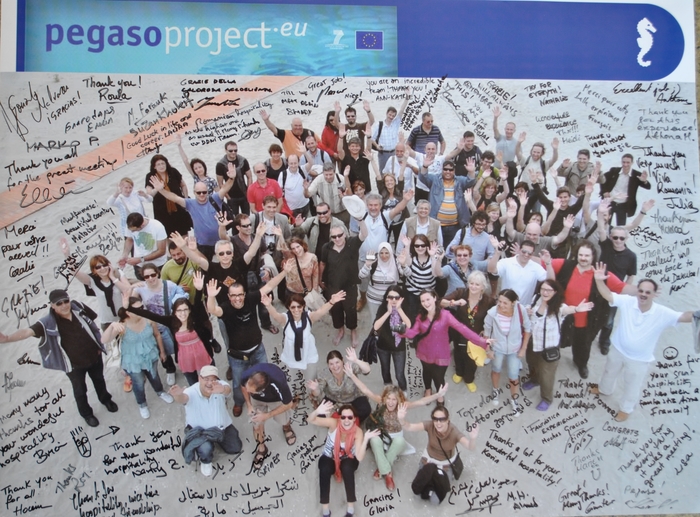 Integrated coastal zone management involves a complex network of different institutions, ranging from public authorities, businesses, and scientific communities providing quality data to help decision making towards sustainable development and nature conservation. With a coast attracting high populations, the Mediterranean has just seen the creation of an Integrated Coastal Zone Management Protocol and is looking at ways to make it effective. The 2nd General Pegaso Meeting took place from the 4 to 8 July 2011 at the Danube Delta National Institute for Research and Development in Tulcea, Romania. More than 65 experts from the partner institutions attended this event. To ensure that the Pegaso project responds to the different stakeholder´s needs, the meeting was also attended by the members of the Users and decision-makers Committee. The next General meeting will be held in April 2013 in Rabat, Morocco. In the meantime, the project Steering Committee ... Full story → | |
Top ↑Connections | |
|---|---|
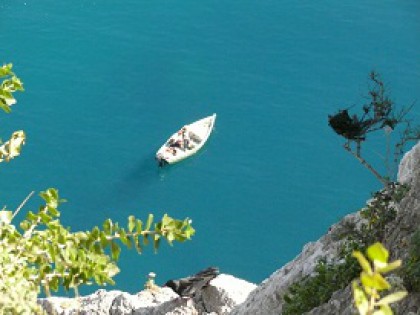 The rationale of this initiative is linked to exploiting common lines of action with existing projects, conventions and institutions active in the Mediterranean towards an efficient and integrated management. To this end, a review has been made on the current state of play on ICZM science capacity and initiatives to feed into the project activities and interactions where appropriate. In this direction, the Pegaso and the work on marine protected areas in the North Adriatic has been presented at the XII Ordinary Meeting of the Croatian, Italian, Slovenian, Montenegrin Commission for the Protection of the Adriatic Sea water and coastal areas in Portoroz last October, on the initiative of end users: Mija Bricelj, Director till November 2011 of the Commission. Representatives attending acknowledged Pegaso and the Croatian Delegation, the new Director of the Commission after Slovenia, proposed to organize a Think Tank, animated by Pegaso to support Adriatic countries in the implementation of the ICZM Protocol. Pegaso was also present ... More info: francoise.breton@uab.cat Full story → | |
Top ↑Events |
|---|
• CAMP Montenegro Inception Workshop, Podgorica, Montenegro, 22 March 2012
• International Conference on Marine and Coastal Ecosystem (MarCoastEcos2012) Tirana, Albania, 25 - 28 April 2012
• International Colloquium on ICZM in the Mediterranean, Annaba, Algeria, 21 - 22 May 2012
• Mediterranean Seagrass Workshop, 28-31 May 2012, Essaouira, Morocco
• MedOpen Course on Integrated Coastal Zone Management, organised by the Coastal Management Centre from May to July 2012
• Regional Workshop on harmonization of national legal and institutional framework with ICZM Protocol, Split, Croatia, 5-6 june 2012
• International Conference Sustainable Landscape Planning and Safe Environment, Istanbul,21-24 June 2012
• IUCN World Conservation Congress, 6-15 September 2012, Jeju, Corea. The IUCN Congress is considered the world's leading environmental summit, as it is the only global event that represents all aspects of nature conservation. Over 10 days, participants will debate, share, network, learn, commit, vote and decide how we manage our natural environment for human, social and economic development.
• The Ninth International Training Workshop on Integrated Coastal Management in the Mediterranean and the Black Sea (MEDCOAST Institute 2012), Dalyan-Aegean Coast-Dalyan, Turkey, from 25 September until 11 October 2012.
• Training Workshop on Spatial Data Infrastructure and Atlas, organised by VLIZ and Pablo Olavide University in Oostende, Belgium from 22 to 25 October 2012
• International Conference on "Land-Sea Interactions in the Coastal Zone", Byblos, Lebanon, 6-8 November 2012
• Forum of Marine Protected Areas in the Mediterranean 2012, 25-28 November 2012, Turkey |